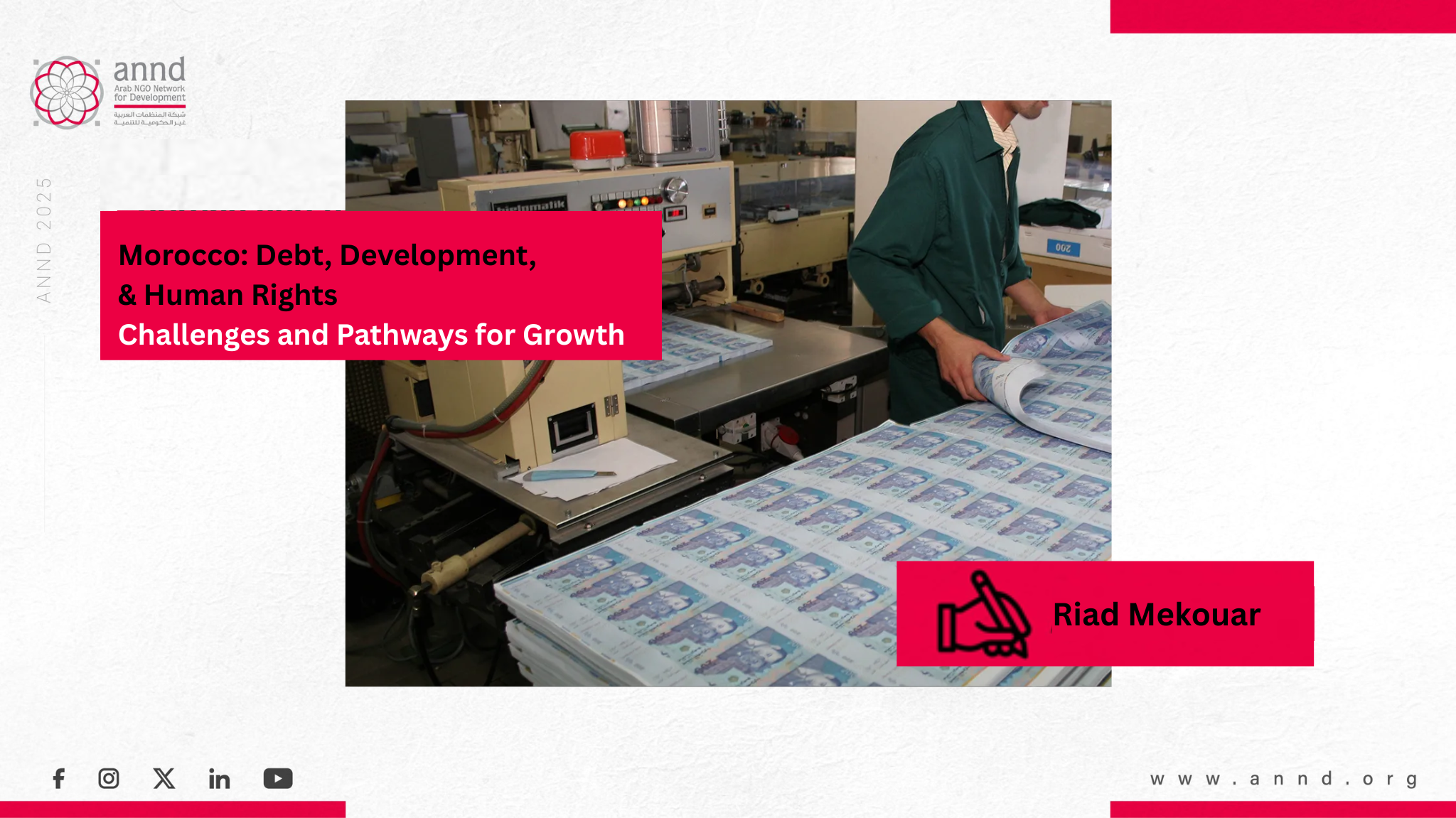
Debt, Development, and Human Rights in Morocco:
Challenges and Pathways for Inclusive Growth - Riad Mekouar
Every economic reality is complex and therefore requires consideration of multiple aspects related to its specificities. Consequently, the solutions that can be proposed to a given problem cannot be uniform. That being said, a few methodological considerations are essential when studying any issue, including debt, in relation to the financing of a major objective, in this case, human rights:
A/ Human rights must be at the center of any process of economic growth and development because they concern human dignity.
B/ Their financing is closely linked to public policies implemented in agriculture, industry, tourism, monetary, fiscal, etc.
C/ Indebtedness is not a bad thing in itself if it leads to an increase in wealth sufficient to allow its repayment.
D/ It is difficult, if not impossible, to consider progressive means of financing independently of progressive public policies.
Taking these four methodological points into account, we can clarify that, with regard to the Kingdom of Morocco:
- The growth rate recorded over the past fifteen years is relatively low (an average of 3%).
- It is volatile and creates little job creation.
- It is all the more so because it depends on climatic hazards, which impact both the level of agricultural production (mainly cereals) and the level of employment. Agriculture employs 40% of the working population but contributes only between 12 and 14% of GDP.
- The industrial sector, which has undergone profound changes, remains a low-job creator due to its high capital intensity. On the other hand, job-creating industries face very serious difficulties due to their inability to cope with international competition resulting from the free trade agreements signed by Morocco.
- As a result, the informal sector is the largest employer in Morocco. The combination of these factors alone results in the inability of the national economy to generate its own resources to finance itself, and consequently, the recourse to increasing but prudently managed debt.
The growth in debt is linked to the financing needs of the economy, including the major projects of the social security system.
The Moroccan government has certainly made financial efforts in the areas of:
- Employment promotion
- Social protection
- Health protection
- And education
However, the results achieved remain below the targeted objectives.
What could be the solutions to address this?
The problems are complex, and therefore, the solutions are also complex. We can only suggest a few avenues for reflection:
- Adopting progressive public policies within the framework of inclusive growth.
- Given the impossibility of solving all problems at once, it would be wise to determine priorities within the framework of planned social policies.
- In our view, human dignity depends first and foremost on satisfying the RIGHT TO WORK, the RIGHT TO HAVE AN INCOME THAT MEETS THE MOST IMPORTANT NEEDS.
- To this end, give greater importance to very small, small, and medium-sized enterprises, which alone can solve the employment problem.
- Promoting "investment in poverty" through the formalization of small businesses in the informal sector.
- Developing various means to increase own resources through tax reform and a communication policy that encourages social solidarity.
- Creating a climate of confidence in the future.
- Establishing better governance.
- Granting greater power to civil society in determining debt amounts and their use.
- Forming regional groups that can exert greater pressure to ensure human rights are respected.
- Lobbying at both the national and international levels to ensure human rights are respected.
Recent publications

